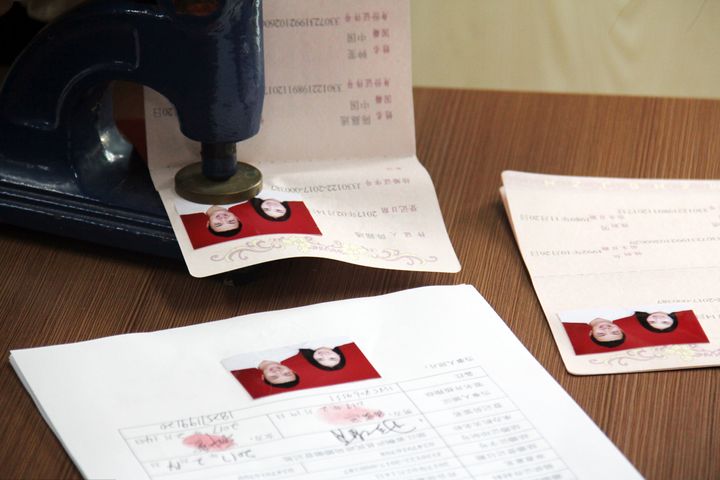 Marriages in China Decline as Young Adults Prioritize Studies
Marriages in China Decline as Young Adults Prioritize Studies(Yicai Global) June 16 -- The number of marriages in China has been falling for three straight years, with those born after 1985 the biggest group of people getting wed.
Civil affairs departments and marriage registration agencies handled 13.47 million marriages in 2013, 1.8 percent more than a year earlier, according to the Ministry of Civil Affairs. However, since then, the number has declined. In 2014 the figure was 13.07 million, falling 6.3 percent to 12.25 million a year later. Last year, the number of marriages was 11.33 million, 7.5 percent less than 2015.
Three Years of Declining Marriages
The 2016 Wedding Banquet Market Report, released by China Hospitality Association, shows that the current marriage population is declining. The were areas where marriages were becoming less common were Henan, Hebei, Hubei, Jiangsu and other largely populated provinces, the report added.
China implemented its family planning policy in 1980. Most people now at marriage age were born after 1985, and are the only child in their family, which has resulted in the falling number of marriage registrations, it said.
Extended education is also postponing the marriage age. Many well-educated, high-income females no longer see marriage as a way to feel secure, as they are busy with their careers.
"I recently went to a reunion of students who went to university in 2001," Ding Changfa, an associate professor of economics at Xiamen University, told Yicai Global. "They graduated 12 years ago. Among the girls, several are unmarried but have well-paid jobs, mostly in Shanghai, Xiamen and other big cities." With women's economic independence, marriage rates have fallen pretty fast, he said, adding that women weren't willing to settle or did not want to have children after getting wed.
Based on his analysis, the continued decline in marriages means the birth rate is also likely to decline, having a major impact on science and technology, innovation, economic restructuring and pensions.
Industries will also need to adapt, he added. As marriage rates decline, the jewelry industry will slow down. In response, many shops are adding new lines, like cheaper gems, to attract couples who are dating but limited financially. Midea, an electrical appliance maker, has expanded its range of small rice cookers to allow people to make smaller batches of rice.
China's Marriage Age is Increasing
In 2011, 20- to 24-year-olds made up the largest proportion of those getting hitched, occupying 36.6 percent. The year after, they were still the largest proportion but their share fell to 35.6.
By 2013, 25- to 29-year-olds made up the lion's share, account for 35.2 percent, just 1 percent higher than the year earlier. The figure reached 38 percent in 2014 and climbed to 39.4 percent last year.
Education seems to be playing a major role in the rising marriage age. "Many of my classmates have master's degrees," said a master's graduate of a prestigious university in Wuhan surnamed Xie. "When they graduate, they are already 25 or 26 years old, and they'll be 30 once they've been working for a few years." Xie is now 28, and is hoping to find a spouse this year.
In addition to education, the marriage age has been closely linked to demographics and urbanization. In recent years, as the economy has entered a new phase, the variances between different regions and cities have become quite clear. The population has been rapidly flowing from third- and fourth-tier cities to first- and second-tier metropolitan areas, where life runs at a much faster pace.
Young people in big cities are more independent, Ding Changfa said. Not like in the countryside where they are pressured into getting married.
As the marriage age rises and the number of weddings declines, the number of divorces is also on the rise. In 2011, 2.87 million couples divorced, 7.3 percent more than the year before. In 2013, 3.5 million split, up 12.8 percent on the year. Two years ago, some 3.84 million people divorced.
In the 1980s and 1990s, divorce was very rare in southern Fujian, said a lawyer in from the province, surnamed Li. "But now, divorce is becoming more and more common. People born after 1985 are the most likely to divorce."